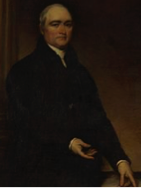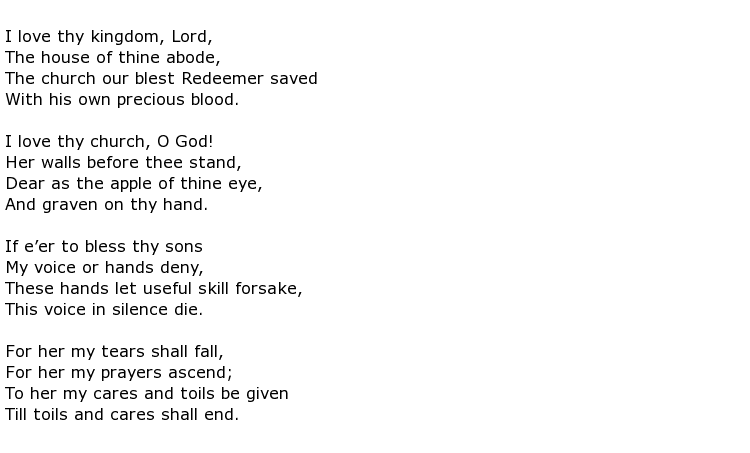 Timothy Dwight was an American poet and writer of hymns as well as being a minister in the Congregational church and an academic. During the last 22 years of his life he served as President of Yale College. One of his best known poems, The Conquest of Canaan, had the distinction, when written in 1785, of being the first true American epic poem.
Timothy Dwight was an American poet and writer of hymns as well as being a minister in the Congregational church and an academic. During the last 22 years of his life he served as President of Yale College. One of his best known poems, The Conquest of Canaan, had the distinction, when written in 1785, of being the first true American epic poem.
He was born on the 14th May 1752 in the Massachusetts town of Northampton. His ancestors included a number of eminent military figures from the American Revolutionary War and beyond. Timothy came from a large family (he had 12 siblings) and was clearly a gifted child. He learned the alphabet incredibly quickly and was able to read passages from the Bible before he had reached four years of age.
There was a strong family connection with Yale College and it was inevitable that he would also study there. He graduated at the age of 17 and had ambitions to become a minister. He had the opportunity to be a rector at a Connecticut grammar school for two years and he followed this with a tutoring position at Yale between 1771 and 1777. By this time he was a licenced preacher and secured an appointment as Congress chaplain with the Connecticut Continental Brigade. He was an inspirational figure to the troops and he wrote a number of stirring songs for them including the well-known composition Columbia.
In early 1777 Dwight married into a wealthy and influential family – the Woolseys – and he resigned his army commission a year later. He had to return home to look after the family interests following the death of his father and he rapidly became a prominent member of Massachusetts society. He gave stirring speeches, both religious and political in nature, and established his reputation as a teacher, setting up his own academy in Fairfield, Connecticut. It was a successful venture and much of that was due to Dwight’s reliance on moral values rather than corporal punishment for his students.
His abilities as an educator and emerging political figure were widely recognised and the reputation of Yale College grew considerably thanks to his efforts, eventually becoming a distinguished university of course. Despite all this he was not universally popular, and was known by some of his enemies as “Pope Dwight”. His reputation as a writer was well established though, especially as a member of the literary group called the “Hartford Wits”.
Here is a fairly typical example of his poetry, the first four verses of a piece called Love to the Church:

His most ambitious project was probably the composition of the eleven-book verse epic called The Conquest of Canaan. It was eleven years after completion before it saw publication (in 1785). He also wrote satirical pieces in addition to many hymns and some minor poems. Additionally he produced a major piece of travel writing called Travels in New England and New York, published in four volumes some years after his death.
Timothy Dwight developed prostate cancer and died on the 11th January 1817 at the age of 64.

